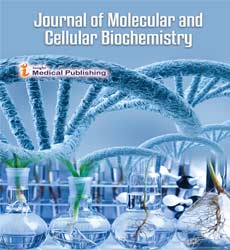Artificial neural network based data mining approaches to identify key molecular drivers of proliferation in breast cancer
Abstract
Despite immense success in the diagnosis and treatment of breast cancer (BC), effective delivery of personalised medicine is needed. This requires the discovery of novel therapeutic targets in subgroups of BC and improvements in treatment efficiency by identifying biomarkers that can predict an individual’s response to therapy. Although chemotherapy is offered in combination with other targeted therapies to 60% of BC patients, it reduces recurrence and mortality rates by only 30%. Given that all the prognostic power of majority of commercial gene assays for guiding therapy comes from genes related to cell proliferation, a St Galleons Expert consensus has recommended the use of proliferation markers/gene assays when choosing an optimal systemic treatment. However, the decision on the best molecular test/marker to be used continues to be debated. The use of novel non-linear computational approaches with sufficient power is urgently needed to identify biomarkers with high specificity and sensitivity. An artificial neural network based integrative data mining approach was applied to multiple BC gene expressions studies (n=2000), using factors (e.g. Grade) that are associated with proliferation as clinical class questions and individual genes as predictors. This analysis identified the marker SPAG5, among the 30 most common genes for the top 100 ranked genes for the proliferation factors across the datasets. Further clinical validation in excess of 10,000 patients revealed implication of SPAG5 in 10-20% of BC, SPAG5 gene CNAs, mRNA and protein expression are associated with poor clinical outcome and predictors of response to chemotherapy.
Open Access Journals
- Aquaculture & Veterinary Science
- Chemistry & Chemical Sciences
- Clinical Sciences
- Engineering
- General Science
- Genetics & Molecular Biology
- Health Care & Nursing
- Immunology & Microbiology
- Materials Science
- Mathematics & Physics
- Medical Sciences
- Neurology & Psychiatry
- Oncology & Cancer Science
- Pharmaceutical Sciences
